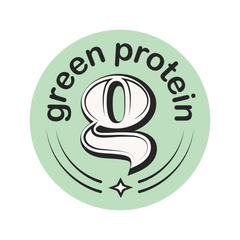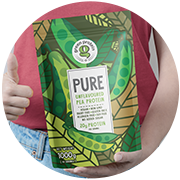
Vegan Protein Powders: A Guide to the Best Plant-Based Options
Whether you're following a plant-based diet or just looking to diversify your protein sources, vegan protein powders can be an excellent addition to your nutrition routine. Made from a variety of plant-based sources, these powders can offer a concentrated dose of protein along with other beneficial nutrients. However, with a myriad of options on the market, choosing the right one for you can be overwhelming. This guide will delve into some of the best vegan protein powder options and what to consider when making your selection.
Understanding Vegan Protein Powders:
Unlike traditional protein powders that are derived from animal sources like whey or casein (both milk products), vegan protein powders are made from a variety of plant sources. Common bases for vegan protein powders include peas, brown rice, hemp, and soy, as well as a variety of seeds and grains.
While plant-based proteins are often criticized for being "incomplete" (lacking one or more essential amino acids), many vegan protein powders combine multiple plant sources to create a complete protein. This means they provide all nine essential amino acids your body needs but can't produce on its own.
Let's look at some of the most popular and beneficial vegan protein powder options:
Pea Protein: Pea protein is a popular choice for vegan protein powders, boasting a high protein content and a good amino acid profile. It's also hypoallergenic, making it a good option for those with food sensitivities.
Brown Rice Protein: Although not a complete protein on its own, brown rice protein is often combined with other plant proteins to achieve a complete amino acid profile. It's easily digestible and tends to be less expensive than other options.
Hemp Protein: Hemp protein is a complete protein and also provides a good dose of fiber and omega-3 fatty acids. However, it has a distinctive taste that may not be for everyone.
Soy Protein: Soy is one of the few plant proteins that are complete on its own. It's an effective muscle builder but has been controversial due to its phytoestrogen content, which some fear could disrupt hormone balance.
Mixed Plant Proteins: Many vegan protein powders combine multiple plant sources, such as pea and rice protein, to create a complete protein with a balanced amino acid profile.
Choosing the Right Vegan Protein Powder:
When choosing a vegan protein powder, it's important to consider several factors:
Protein Content: Check the protein content per serving. Ideally, each serving should provide at least 15-20 grams of protein.
Amino Acid Profile: Look for a powder that offers a complete amino acid profile, meaning it contains all nine essential amino acids.
Ingredients: Check for any added sugars, artificial sweeteners, or additives. Aim for a product with minimal and recognizable ingredients.
Allergens: If you have any food allergies or sensitivities, make sure the protein powder is safe for you to consume.
Taste and Texture: These are subjective but important. Some plant proteins can have a gritty texture or strong flavor. Consider trying a small amount before committing to a large tub.
Price: Finally, consider the cost per serving. Some vegan protein powders can be pricey, so find a balance between cost and quality that works for you.
In conclusion, the world of vegan protein powders offers an impressive array of options to suit nearly any dietary preference or requirement. Whether you're fully committed to a plant-based lifestyle, have specific dietary restrictions, or simply wish to diversify your protein sources, there's likely a vegan protein powder that's an excellent fit for you.
However, it's crucial to remember that while protein powders can serve as valuable nutritional tools, they should complement, not replace, a balanced diet rich in whole foods. Whole foods offer a broad range of nutrients beyond protein, including fiber, vitamins, minerals, and phytochemicals, that contribute to overall health and well-being.
When choosing a vegan protein powder, consider factors like the protein content, amino acid profile, ingredient list, potential allergens, taste and texture, and cost. You may need to try a few different options before finding one that aligns with your taste preferences and nutritional needs.
As with any dietary change, it can be beneficial to consult with a healthcare provider or dietitian, particularly if you have specific health concerns or dietary needs. They can provide personalized advice to help you navigate your choices and ensure your diet supports your health and fitness goals.
Ultimately, vegan protein powders can be an excellent tool in your nutritional arsenal, providing a convenient, plant-based protein source that supports your dietary goals and lifestyle. Explore, experiment, and discover the power of plant-based protein to fuel your body and your life.






